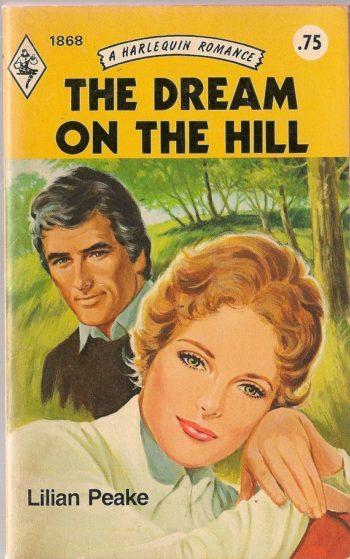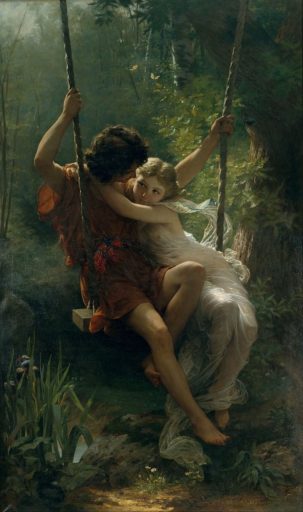Ask anyone what an ‘RO’ or ‘LI’ is, and you’re likely to figure out who is and who isn’t an interactive fiction reader. That’s how essential Romance Options and Love Interests have become to the medium. Notice how I didn’t say genre? That’s because romance—in these games, at least—is non-negotiable.
Whether it’s an RPG like Pathfinder: Wrath of the Righteous, a visual novel like Tsukihime, or a choicegame like Samurai of Hyuga, players have all come to expect the ability to court some of the characters. Let’s see if I can explain why!
The Rise of Romance in Interactive Fiction
Interactive fiction has existed in a book format (“to pick up the sword, go to page 45”) since the 40s, becoming more popular in the 70s and often referred to as ‘gamebooks’ or ‘choose-your-own-adventure’ stories. In Japan, however, the name of the game (or 70% of them, anyway) was—and remains—visual novels.

These VNs, unlike western gamebooks, were on now-vintage computers like the PC-88 and PC-98, whose users were predominantly adult men with exceptional amounts of technical know-how and money. In other words: nerds. It’s little surprise that the games they made and marketed to themselves were more than a little lewd.
Lust always comes before love, and while these early VNs were certainly erotic, over time, more and more complex scenarios were written for them. Legitimate romance stories were being made, and with VNs finally breaking the culture barrier here in the West, we’ve seen an explosion of stories.
With tools like Ren’Py, it’s never been easier to create a visual novel. The genre, once limited to only the geekiest of otaku, has become its own tag on Steam encompassing hundreds upon hundreds of titles. And—as with every other once-obscure, nerdy hobby—us Geek Elite Gatekeepers™ were forced to contend with our mortal foe:
Girls.

Female Readers
For the record, I was only kidding about the gatekeeping. What I’m about to talk about next, however, is no joke. If you’re an author who has any illusion of one day making a living off your craft, you better listen up!
Women represent 75% of the most active digital readers. Over 50% of mass-market paperback fiction sold in the US is romance, and the genre rakes in more money than mystery, sci-fi, and fantasy combined. It is the literary behemoth, driven by the gender that makes upwards of 80% of all consumer purchases.
What do these numbers mean? Well, it means most readers are women who prefer romance stories. As interactive fiction continues to grow in popularity, the user base will conform into that of traditional fiction. While the average age of choicegamers is certainly younger than 45, the reality is that the future of IF is one that caters to women.
Male Readers
Okay, so where does that leave us dudes? Well, when it comes to romance books, we have a lot going against us—including ourselves. The very nature of man lends him to be more stimulated by visuals than text, for starters. That’s a big strike one. As for strikes two and three…they have everything to do with shame.

The shame men face in regards to sex can be summed up in colorful slurs: cuck, incel, beta, and simp—to name a few. A man who is a ‘simp’ for a girl—who gushes over her, fantasizes about her, and even gifts her money—is seen as weak and pathetic. Perhaps he is. Regardless of our opinions, however, society, as a whole, shames him.
Female simps, on the other hand, are largely excused of shame. Likely because of this, they far outnumber their male counterparts. Instead of blame, society is more likely to encourage their behavior: girls have fawned over everything from the Beatles to Justin Beiber without being depicted as disgusting creeps. This wouldn’t be the case with the genders reversed.
Whether it’s fair or not, it’s reality. Another reality is this: girls are far more likely to simp for fictional characters than guys are. Hang out on Discord servers with otome players long enough and you’ll see what I mean.
These girls are largely the ones pre-ordering games, buying merchandise, and supporting the creators on Patreon. It should come to no one’s surprise that the medium is shaping around them.
But that’s enough controversial statements for one blogpost! It’s time to move on to the more nitty-gritty aspects of intimacy.
Lovemaking is like Swordfighting
Your characters should never be in a fight for no reason. You’re wasting your time and the reader’s if it has no bearing on the main story—no tie-in that helps further the plot. A good battle has a conceivable build-up beforehand along with a satisfying—or interesting—resolution that leaves the reader begging for more.
Sex scenes work the same way. If they don’t fit in properly into your story, if they don’t feel like they’re occurring naturally or in a way that makes sense, then hit your head against your outline until they do.
“There’s only so many ways to swing a sword” is a conundrum I currently face, five books and hundreds of thousands of words into Samurai of Hyuga. As you can imagine, intimacy can suffer from a similar fate. It’s important to keep things varied: I’m not talking about kinks so much as scene length and what you choose to focus the reader’s attention on.
Interruptions
‘Getting interrupted’ is a very common trope for a reason: it cuts the drama curve when it’s at its peak, right before it flatlines back down. This keeps a tasty amount of tension between the characters. It’s unrealistic, sure, but it’s also an immensely valuable tool.
Don’t be afraid to use it. Whether you’re loving or fighting, the “this isn’t finished yet” is a great way to maintain that juicy drama going forward.
Making Romance (and Sex) Optional
I just mentioned a few paragraphs ago that intimate scenes should fit into the story and further the plot in one way or another. But how are us interactive fiction writers supposed to square that circle when the romance itself is optional?
Well, here’s an example: maybe, after the passionate act, the main character notices a tattoo/scar from their lover. This will introduce PLOT_POINT. Alternatively, if they decide not to bump uglies, a scene occurs where the other character must strip or otherwise be seen by the main character while partially nude. The protagonist will notice the tattoo/scar and we get to the same PLOT_POINT under starkly different circumstances.
(This is the sick and twisted sort of juggling act us poor choicescript authors have to manage all the time. Feel free to pity us!)
Dominance & Submissiveness
Alright, so I may have been lying about not making any more controversial statements.
‘Tops’ and ‘bottoms’ exist in every romantic relationship regardless of gender or sexuality. The masculine-feminine dynamic is inherent to romantic love. It’s important to note that both are a range, and that all people (including fictional ones) possess varying degrees of both.

We live in a world of constantly changing definitions and identities, which is all well and good, but the fundamental concepts beneath masculinity and femininity haven’t changed. As an author, you need to be aware of these concepts and how they interact with each other to produce the drama we call romance.
Dominance is a subset of traits beneath the vast umbrella of masculine qualities, while submissiveness is a subset of traits within those of feminine qualities. While that sounds like a bold statement to make in the current political climate, it isn’t such a disputed issue when you realize that everybody has elements of both the masculine and feminine inside them.
You can absolutely write a male character who is both largely masculine and submissive at the same time, just as you can create a highly feminine female character who is much more dominant.
Some IF authors may face a temptation to allow the player to choose whether a romance option is dominant or submissive in nature. In my opinion, this is a mistake. There are plenty of aspects of dominance and submissiveness that go beyond the bedroom. When you leave any aspect of a character’s personality to choice, you weaken the character.
As far as player agency is concerned, it’s your job to create the characters and theirs to choose whether or not they wish to pursue them romantically.
How Erotic is Too Erotic?
A lot of the ‘lewdness level’ is dependent on the medium, and it’s important to know your readers’ expectations to manage them accordingly. Getting too crass can take away from a novel where the focus isn’t on stringing together a series of raunchy scenes.
In SoH, I don’t use explicit words like ‘pussy’ or ‘penis’ or ‘cock’ in my sex scenes. I don’t need them. I’ve found that describing sexual actions without using these words is not only a fun challenge—it can produce some decent sounding prose.
A nice tip—no pun intended—is to always remember that you can go vague in some areas while getting detailed in others, like the warmth of a tongue or the tickling brush of chest hair.
Combinations
As if optional romances weren’t tricky enough, us IF writers have to account for combinations. For SoH, those are the following:
Male MC – Female RO
Male MC – Male RO
Female MC – Male RO
Female MC – Female RO
From a story perspective, having four different combinations isn’t nearly as daunting as making a romance entirely optional. But it’s still something you will have to consider. You’re not always going to have the same equipment to work with, after all, which means you can’t just copy-and-paste your way to victory.
Love vs Lust
I’m not sure if this phenomenon has a name, but I’ve noticed a tendency that readers (including myself) tend to have. Before we get swept up into a novel, whether we’re browsing at the bookstore or app market, the story having hot and heavy intimate scenes is pretty important to us—even a dealbreaker, for some.
Once we actually sink our teeth into it, however, and lose ourselves in the plot, the characters, and all the drama that unfolds, the actual sex stuff loses its importance. Sure, it’s usually not unwelcomed, but it’s not the end-all-be-all.
If I had to guess, I’d say this phenomenon plays into the shallowness of lust against the deepness of love and affection. While this may be an overly big-brained take, what if reading a book was like a relationship between the reader and the story? At the start, it’s the immediate, superficial stuff that seems to matter most.
But hours in (and years later) you start to realize what really counts. Kinda makes you think, doesn’t it?


Great post! You did a phenomenal job of this for Book 4, especially. I’m a female player and as much as I adore our ronin, I was a little concerned at times that she would erase her feminine traits and become “the man” of every potential relationship. That didn’t happen, though! She gets to be a badass, sometimes feral, crazy ronin and still have her internal concerns about how others perceive her, and become a real cutie when someone (*ahem* Jun) tries to play around. For a character that spends so much time protecting others and trying not to show any weakness, she really needed those moments where others take the lead and protect her.
Looking forward to Book 5! I can’t speak for the others, but this female reader is extremely happy about how you handled the first four books. Everything is perfect : )
Another brilliant post, thank you so much for doing these I definitely have a bit to think about now. Im looking forward to the next soh
I feel very similarly to Gaby. My lady ronin is very rough-around-the edges, tomboyish, and a brutal fighter, often protective of others. Despite how masculine she may be, she really appreciates when people (men in her case) treat her like a woman sometimes, showing gentleness and protectiveness. Like when the Baron carries her bridal style to bed or how Jun takes on a more dominant role in the relationship (he’s not gentle but he makes her feel womanly). I appreciate how the games let her be a total badass while also preserving her femininity at key times.